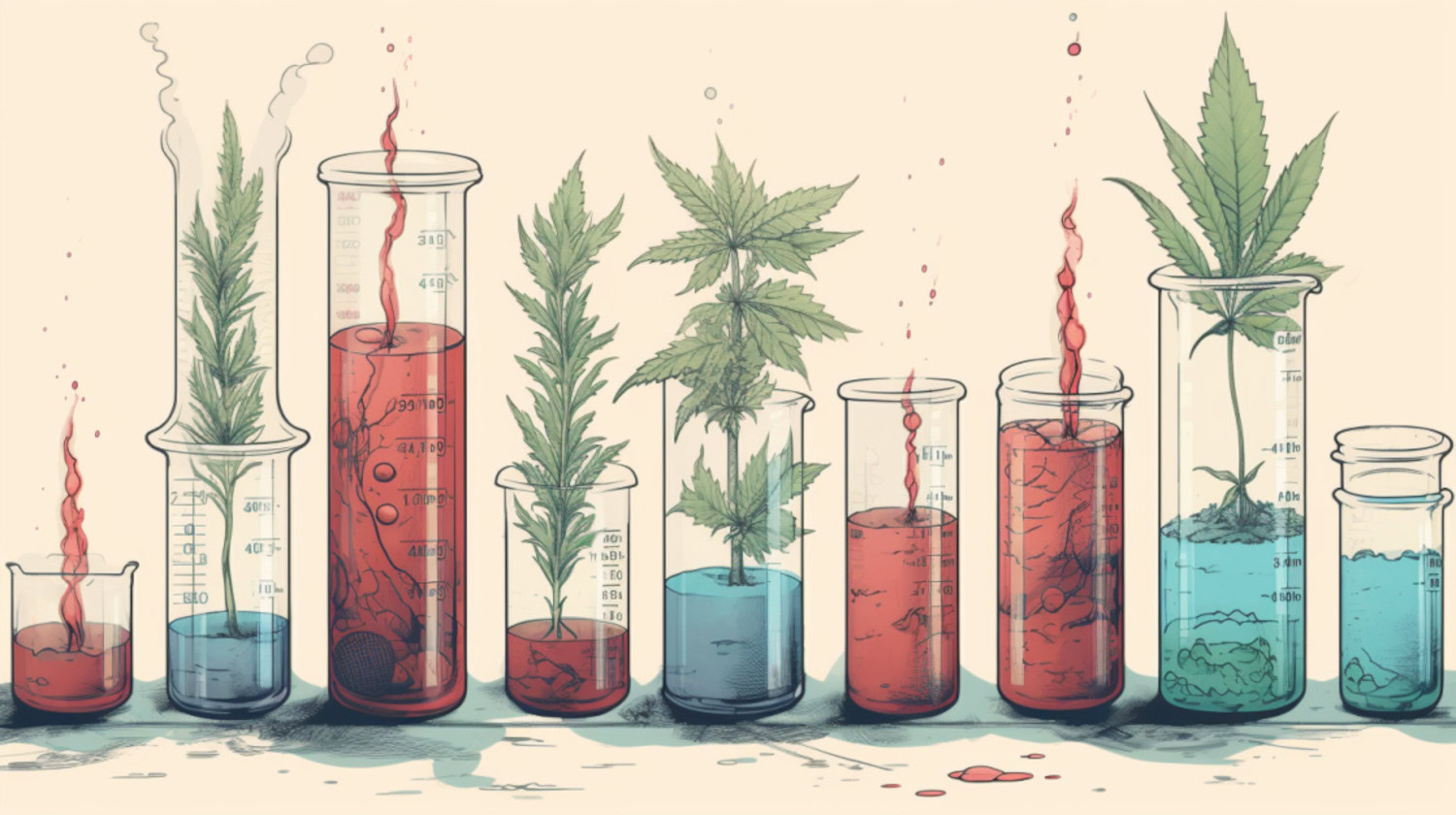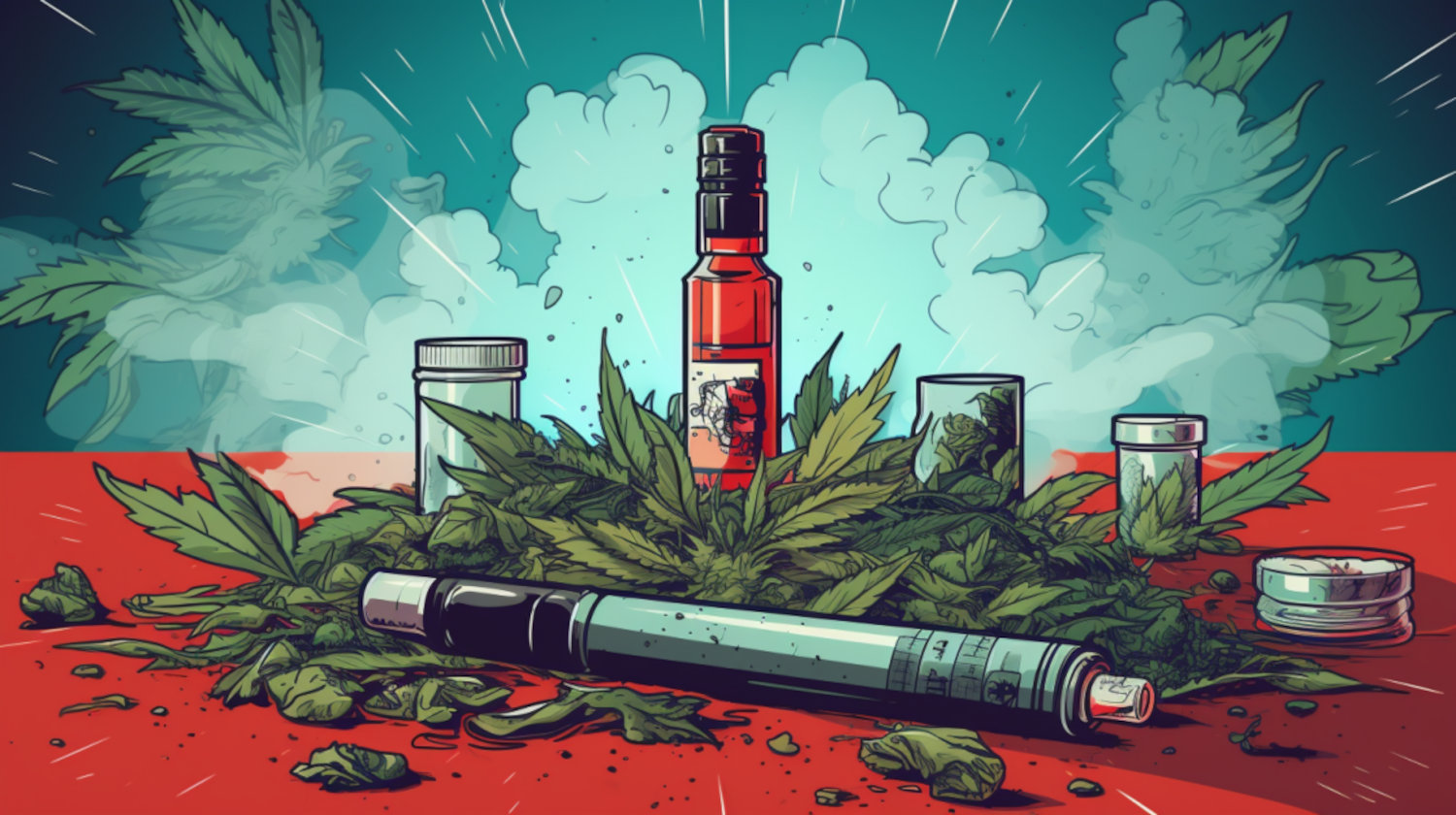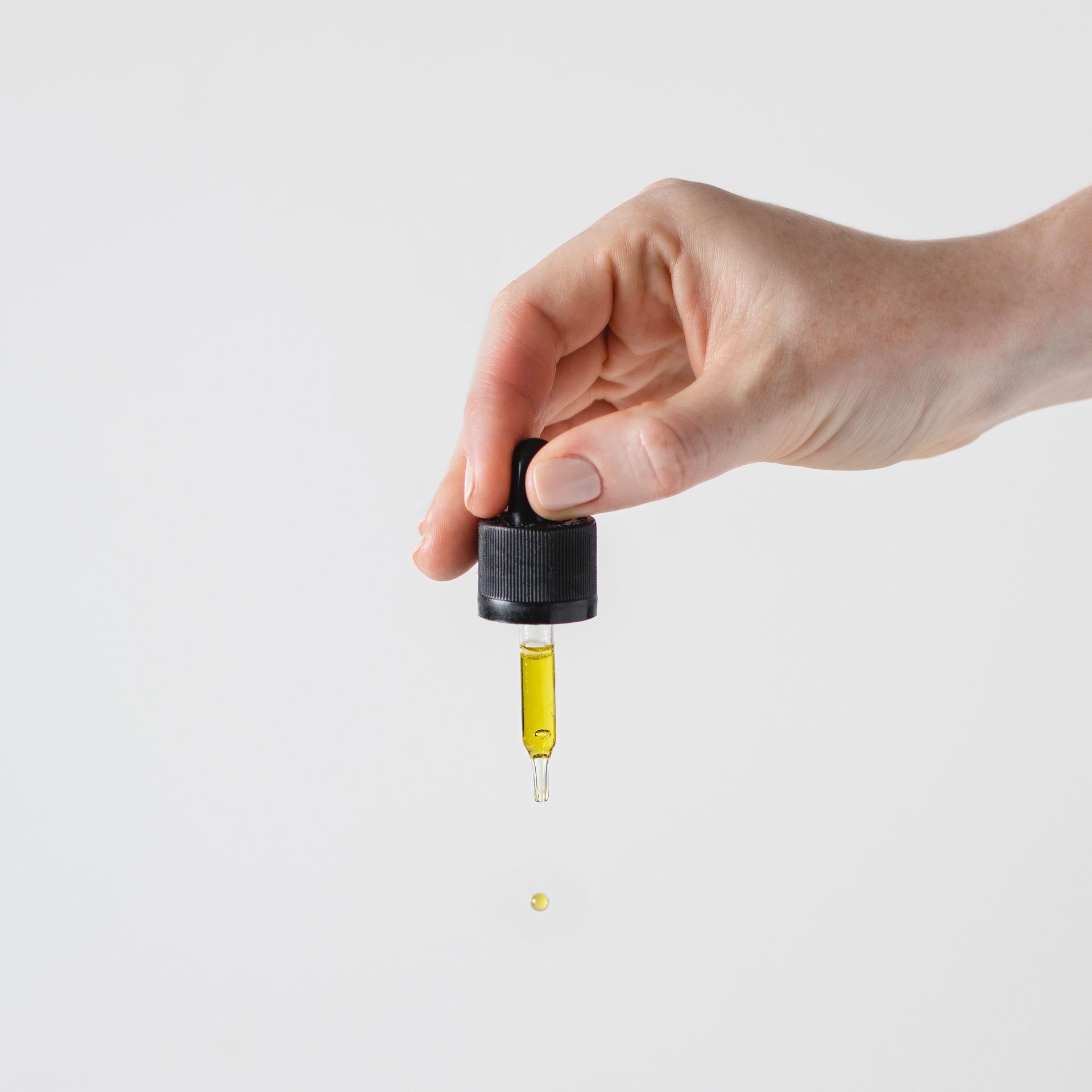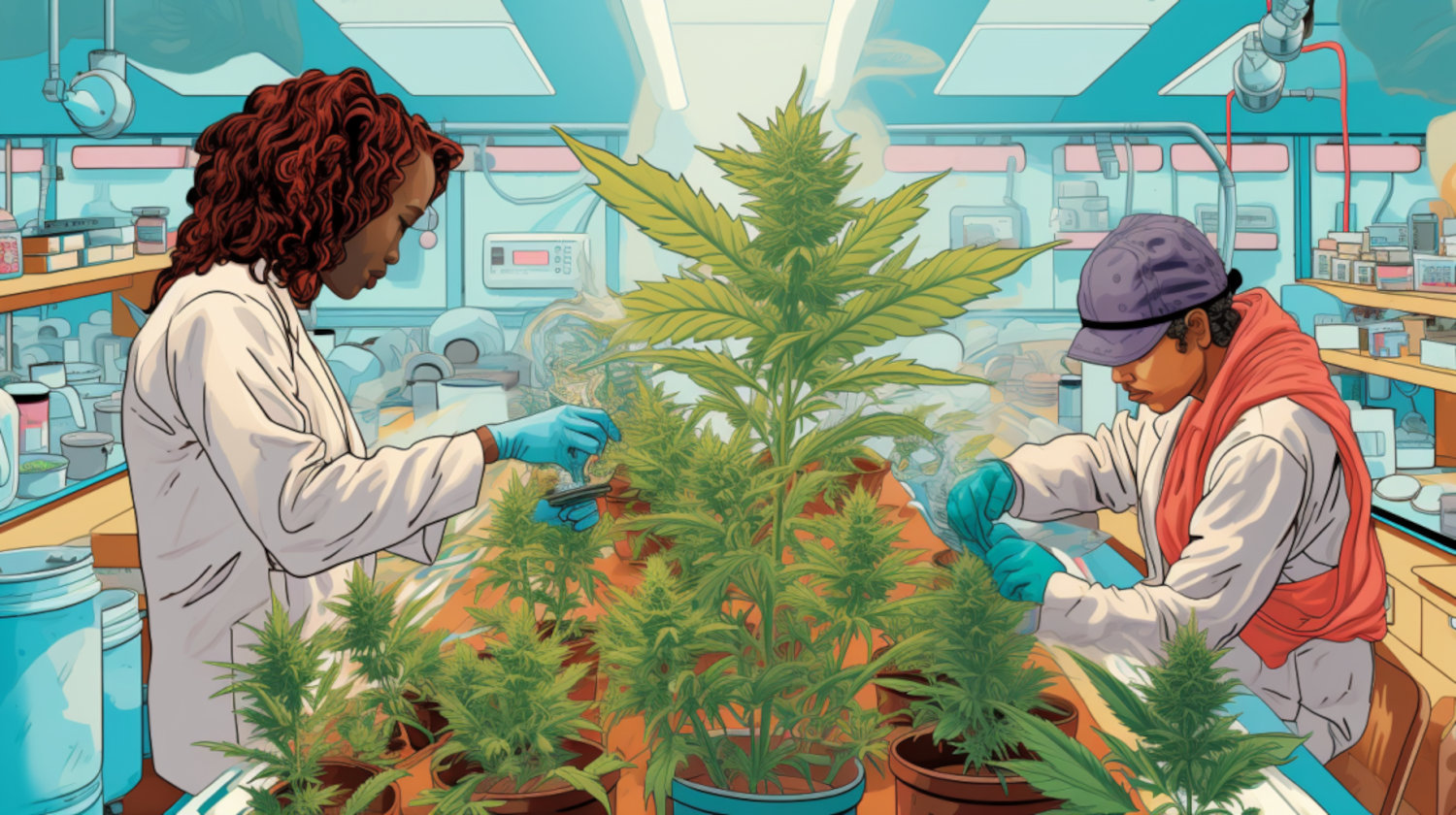In This Article
The passage of the 2018 Farm Bill opened the doors for a variety of new cannabinoids beyond the common THC and CBD. One of the new cannabinoids to hit the scene is THC-B.
While not as well-known, it's interesting because it might have some mind-altering effects and work differently in the body than THC or CBD. Scientists and cannabis enthusiasts alike are both really interested in learning more about it.
So, what is THC-B?
What Is THC-B?
THC-B, or tetrahydrocannabutol, is a lesser-known cannabinoid found in certain varieties of cannabis and has been gaining attention for its unique properties and potential therapeutic effects.
THC-B is a natural compound found in some types of cannabis plants, particularly those with high levels of THC. It's part of a group of chemicals called phytocannabinoids, which are derived from the cannabis plant.1
THC-B is like THC in some ways, but it has its own unique structure. This is because of something called the butyl side chain in its chemical structure. Because of this difference, THC-B affects the body in its own way, distinct from that of THC.
Research on THC-B is still new, but recent studies have started to uncover how it works in the body. For example, one study found that THC-B binds to CB1 and CB2 receptors, similar to THC.2 However, it seems to be even more active at CB1 receptors compared to another cannabinoid called Δ9-THCV. This means THC-B might have different effects on our body's endocannabinoid system compared to other cannabinoids.
Effects and Benefits of THC-B

THC-B, just like other cannabinoids, affects the body's endocannabinoid system in different ways. Researchers are still figuring out exactly how it works, but they have learned the following.
THC-B Intoxication
Just like THC and other cannabinoids, THC-B can get you "high." People who've tried it say they feel as intoxicated, if not more, compared to THC.
Analgesic Properties
Some research suggests that THC-B might help relieve pain. In tests with mice, THC-B showed promise in reducing pain, but more research is needed to see how well it works for long-term pain management.
Anti-inflammatory Activity
THC-B seems to have some anti-inflammatory properties, according to studies done with animals. One study found that THC-B might help reduce inflammation and relieve pain in certain models of inflammation.
Neurological Effects
There's some early evidence that THC-B could be helpful for neurological conditions, such as epilepsy. THC-B binds to CB1 receptors, which are involved in our nervous system.3 This suggests that THC-B might have the potential to treat neurological disorders, but we need more research to be sure.
Risks of THC-B
Even though researchers don't know a lot about THC-B yet, it's important to think about the possible risks that come with using it.
Just like with other cannabinoids, using THC-B might affect how you feel, although not in the same way as THC. People might notice changes in their mood, how they see things, and how well they can move. Some folks might also feel anxious or paranoid after using it.
Semi-synthetic cannabinoids, like THC-B, can be risky because they're not regulated during production and sale. Just like with delta-8 THC, products with THC-B might have different strengths, be inconsistent, or even have impurities. Without strict rules in place for making them, there's a higher chance of purchasing products that could be harmful to your health.
People who have tried THC-B products may report adverse reactions like feeling anxious, coughing, or paranoid. These reactions are similar to what some folks experience with delta-8 THC.4 Due to the lenient rules for testing and making THC-B products, there's a worry that you might end up with a product that's not safe to use.
THC-B vs. Other Popular Cannabinoids

THC-B vs. Delta-9 THC
While both THC-B and delta-9 THC interact with cannabinoid receptors in the body, THC-B may have greater intoxicating effects compared to delta-9 THC, given its chemical structure. Although this is difficult to say for certain without additional research.
THC-B vs. Delta-8 THC
THC-B and delta-8 THC share similarities in their molecular structure and potential therapeutic effects. However, anecdotal reports suggest that THC may have slightly stronger intoxicating effects compared to delta-8.
THC-B vs. Delta-10 THC
Delta-10 THC is a lesser-known cannabinoid that shares similarities with THC-B and other THC analogs. Research on delta-10 THC is limited, making direct comparisons with THC-B challenging. Both cannabinoids may exhibit therapeutic effects, but further studies are needed to understand their pharmacological profiles fully.
THC-B vs. THCA
Unlike THC-B, THCA (tetrahydrocannabinolic acid) is a non-intoxicating cannabinoid found in raw cannabis plants. THCA must undergo decarboxylation, usually through heat, to convert into THC, the intoxicating form. While THC-B and THCA may both offer therapeutic benefits, they differ in their potential for intoxication.
THC-B vs. THCV
THC-B and THCV (tetrahydrocannabivarin) share similarities in their molecular structure but have distinct effects on cannabinoid receptors. While THC-B exhibits a high binding affinity for CB1 receptors, THCV is known for its potential to act as both an agonist and antagonist at cannabinoid receptors. Their differing pharmacological profiles result in unique effects on the body.
THC-B Products

As of now, THC-B products are not widely available in regulated markets. While research into THC-B's potential benefits is ongoing, the lack of regulatory oversight means that any existing products are likely unregulated and potentially unsafe for consumption.
THC-B products, if available at all, are predominantly found in the form of edibles and vape cartridges (commonly referred to as "carts"). These products may be marketed as offering the unique effects of THC-B, but with regulatory standards, consumers can be assured of their quality, potency, and safety.
The absence of regulation in the THC-B market poses significant risks to consumers. Without oversight, there is no guarantee of accurate labeling, consistent dosages, or absence of harmful contaminants. As a result, individuals seeking THC-B products should exercise caution and be aware of the potential health hazards associated with unregulated cannabis products.
References
- Linciano P, Citti C, Luongo L, et al. Isolation of a High-Affinity Cannabinoid for the Human CB1 Receptor from a Medicinal Cannabis sativa Variety: Δ9-Tetrahydrocannabutol, the Butyl Homologue of Δ9-Tetrahydrocannabinol. Journal of Natural Products. 2019;83(1):88-98. doi:https://doi.org/10.1021/acs.jnatprod.9b00876 ↩︎
- Sampson PB. Phytocannabinoid Pharmacology: Medicinal Properties of Cannabis sativa Constituents Aside from the “Big Two.” Journal of Natural Products. 2020;84(1):142-160. doi:https://doi.org/10.1021/acs.jnatprod.0c00965 ↩︎
- Senn L, Cannazza G, Biagini G. Receptors and Channels Possibly Mediating the Effects of Phytocannabinoids on Seizures and Epilepsy. Pharmaceuticals. 2020;13(8):174. doi:https://doi.org/10.3390/ph13080174 ↩︎
- Leas EC, Harati RM, Satybaldiyeva N, et al. Self-reported adverse events associated with ∆8-Tetrahydrocannabinol (Delta-8-THC) Use. J Cannabis Res. 2023;5(1):15. Published 2023 May 23. doi:10.1186/s42238-023-00191-y ↩︎
The information in this article and any included images or charts are for educational purposes only. This information is neither a substitute for, nor does it replace, professional legal advice or medical advice, diagnosis, or treatment. If you have any concerns or questions about laws, regulations, or your health, you should always consult with an attorney, physician or other licensed professional.




